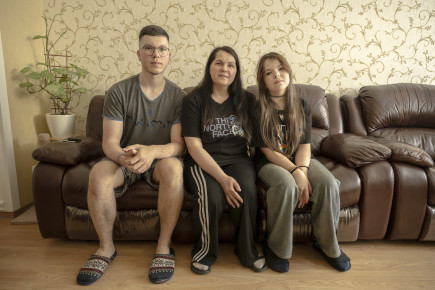From unemployed youths to visionary entrepreneurs: social transformation in Ethiopia
Published: Jun 5, 2023 Reading time: 3 minutes Share: Share an articleToday, Ethiopia is grappling with critical youth unemployment. Over 6 million people have registered as unemployed in the past six months alone, with only 2.3 million having access to job opportunities. At our LISEC (Leather Initiative for Sustainable Employment Creation) project, supported by the European Union, we are working to equip young Ethiopians with essential skills and development training to give them better access to the job market.
Modjo is a city known for its leather industry, which employs the majority of the city's population. We are giving young people the skills necessary to work in this industry. To this end, we have started working with TVET (Technical and Vocational Education and Training) Colleges in several locations in Modjo.
To prepare young people for the job opportunities
During our visit to the TVET colleges in the towns of Dukem and Sebeta, we met trainees who had just begun training two weeks ago. Their training forms part of our LISEC green jobs project, funded by the EU and aims to enhance job creation and skill development for unemployed youth in Modjo and the surrounding areas.
Nejat Ahmedin is a trainer at Dukem TVET College. She provides short-term training to young people from diverse kebeles and focuses on teaching leather production and creating leather goods. Among other things, students learn how to make footwear during the training. In the end, the trainees are connected with cooperatives for valuable apprenticeships.
However, the local training sites had only old and inadequate machines, which did not allow the teachers to prepare their students well. That is why People in Need, with the support of the Czech Development Agency, donated state-of-the-art sewing machines to targeted TVET Colleges.
New machines motivate students
Zelalem Alemu, the director of Dukem TVET College, described the impact of new machine delivery on their training. "One of the challenges that our college faced was the shortage of machines even though we have professional teachers to train students. Now we can increase our uptake and receive 90 trainees for four months. Previously we were forced to receive a small number of students, which impacted our goal to reach."
The new machines make the trainees’ work easier and motivate them to be more creative. The trainees share their experiences and practical tips in making sketches and patterns with each other. Some of them have already started thinking about starting their own business.
People in Need has long worked with local authorities to increase youth employment. The project has linked young people with diverse backgrounds—physically disabled, unemployed and economically poor—with the local TVET College for short-term training.
The LISEC green jobs project, funded by the EU and implemented by People in Need, Solidaridad, and IRC, has set out to capacitate TVET Colleges (Adama Denbela, Bishoftu, Dukem, and Sebeta) through the donation of 58 leather sewing machines and ensuring high-quality skill development training in the leather sector.

